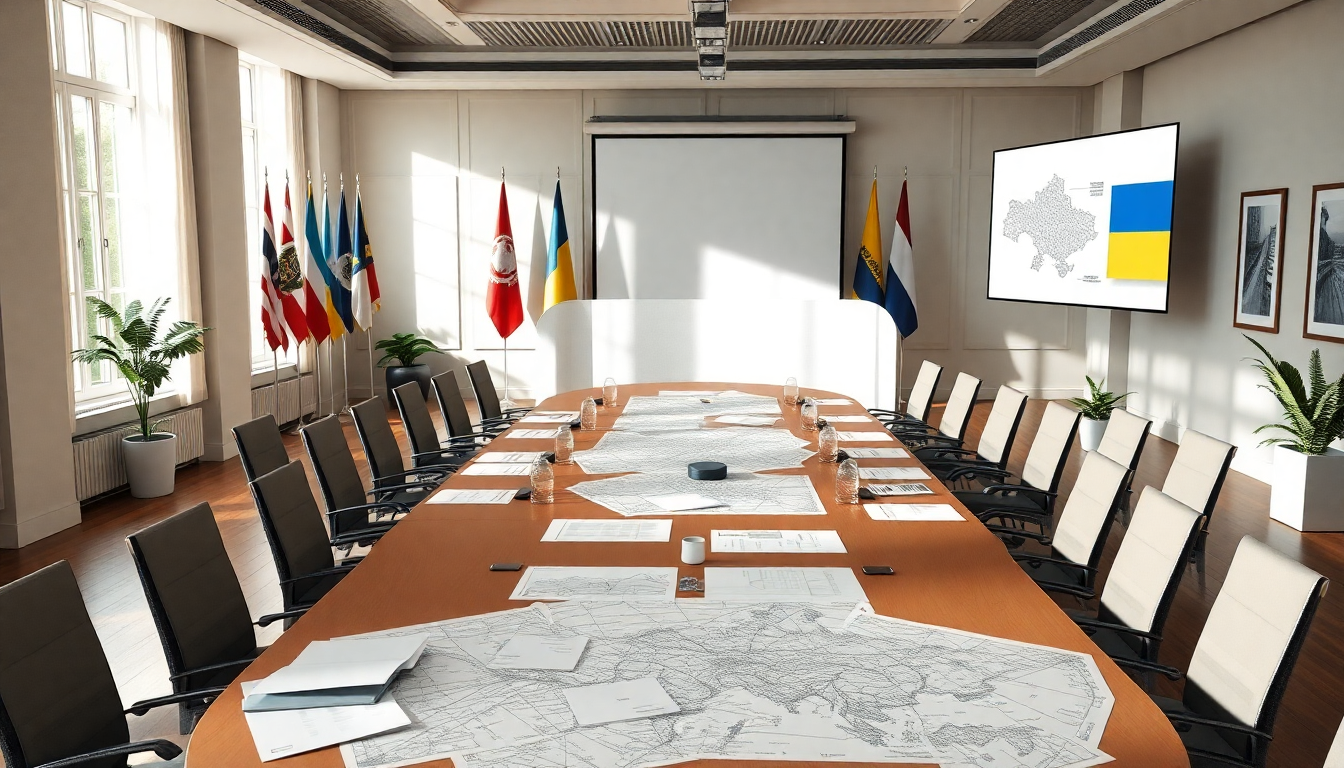Table of Contents
As international leaders gear up for crucial talks on the ongoing conflict in Ukraine, the stakes are incredibly high. With tensions still simmering after Russia’s full-scale invasion in February 2022, Ukrainian President Volodymyr Zelenskyy has made one thing crystal clear: any peace agreements made without Ukraine’s involvement won’t lead to lasting solutions.
Let’s dive into the current state of negotiations, the surrounding geopolitical dynamics, and what it all means for Ukraine’s future.
The Landscape of Negotiations and Ukraine’s Stance
In a world where tensions are escalating, President Zelenskyy has firmly pushed back against any idea of ceding Ukrainian territory to Russia.
His recent statements underscore a strong commitment to Ukraine’s territorial integrity. In a heartfelt video message, he expressed a willingness for meaningful negotiations but insisted that any talks must respect Ukraine’s constitutional rights regarding its land. Zelenskyy issued a stark warning: agreements made without Ukraine’s participation would be nothing more than ‘stillborn decisions’—ineffective and likely to lead to further conflict instead of resolution.
These sentiments come against a backdrop where U.S. President Donald Trump has floated the idea that peace might require some territorial compromises, a notion that Zelenskyy vehemently rejects. The complexity of these negotiations is amplified by the grim realities on the ground, where the conflict has claimed tens of thousands of lives and displaced millions.
As the world watches, the ongoing discussions between Russia and the U.S. are pivotal. This marks the first meeting between sitting leaders since the Geneva summit in 2021, and the anticipated gathering in Alaska aims to explore paths to a peaceful resolution.
However, the conditions set by Russia complicate matters significantly. President Putin’s insistence on Ukraine giving up occupied territories and halting military support from Western nations creates a stalemate, leaving the future in limbo.
Challenges and Conditions for Effective Negotiations
The road to negotiations is littered with challenges, especially regarding the preconditions laid out by Russia. Historically, Ukraine and its allies have staunchly rejected any agreements that would lead to a loss of occupied land. The Kremlin’s demands, including stopping Western military supplies to Ukraine and excluding Ukraine from NATO, highlight the contentious nature of these discussions.
Analysts suggest that while a ceasefire agreement could potentially freeze current lines of conflict, the stipulations required by Russia may block any chance of sustainable peace. Observers remain skeptical about whether Russia’s demands can be met, particularly when it comes to NATO’s role in the region.
Moreover, the idea of a territorial swap or concessions remains a hot-button issue. Zelenskyy’s firm stance against territorial compromises resonates with many Ukrainians who have borne the brunt of this war. The historical significance of contested territories, such as Crimea and the regions of Kherson, Donetsk, Zaporizhia, and Luhansk, complicates the narrative, making any form of concession politically and emotionally charged.
Looking Ahead: Potential Outcomes for Ukraine
Despite the daunting realities of the current situation, there are glimmers of hope. Polish Prime Minister Donald Tusk recently hinted that a pause in the conflict might be on the horizon, suggesting a potential shift in the diplomatic landscape. While the term ‘freeze’ may not imply a complete halt to hostilities, it does indicate that the international community is actively seeking ways to foster dialogue and resolution.
The upcoming summit in Alaska will be a critical turning point for all parties involved. As global attention turns to these negotiations, the outcomes will likely shape the geopolitical landscape for years to come. For Ukraine, the focus remains on preserving territorial integrity while pursuing talks that could lead to a more stable and peaceful future.
In conclusion, the journey toward peace in Ukraine is fraught with challenges. As Zelenskyy continues to champion Ukraine’s rights and sovereignty, the international community must navigate the complex web of diplomacy, military strategy, and national interests. Only through genuine engagement and respect for Ukraine’s position can a sustainable resolution be achieved.





